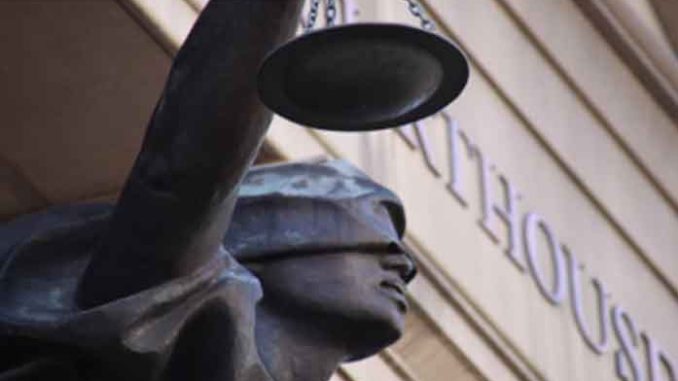
A judge announced Thursday he will not stop state revenue officials from collecting the 3.5 percent tax surcharge approved by Arizona voters in November that is earmarked for K-12 education, but that ruling could change in the future.
Judge John Hannah’s decision involving Prop 208 dealt solely with whether a “no supplant” clause interfered with the ability of state legislators to fund schools as they see fit. The judge still has to decide over the next several months whether the tax surcharge on incomes of $250,000 (or $500,000 for married couples) is a new tax or an increase to an existing tax, and whether it is constitutional.
Hannah was asked to issue a temporary restraining order preventing Prop 208 from taking effect until a trial is held on claims by some Arizona legislators that the voter-initiative interferes with their duties based on a “no supplant” clause in Prop 208 which mandates that its funds “are in addition to any other appropriation, transfer or allocation of public or private monies from any other source and may not supplant, replace or cause a reduction in other funding sources.”
But Hannah said the clause in question does not apply restrictions on the legislature. Instead, it refers only to school districts and charter schools that receive Prop 208 funds.
“It does not limit or affect what the legislature does with general fund revenues,” he ruled, adding that legislators involved in planning the budget will not be harmed if Prop 208 is allowed to go forward while the lawsuit winds its way through the judicial system over the next year or two.
Hannah’s ruling denying the restraining order does not affect the lawsuit itself. The judge still has to rule on other aspects of the plaintiffs’ case, and then set the matter for trial.
Invest in Education organized the Prop 208 voter effort and spent millions of dollars getting it passed in the 2020 General Election, albeit with less than 52 percent of the votes. It is expected to raise $827 to $940 million annually for school funding, although those figures are based on pre-COVID19 estimates.
Several people joined together to challenge the constitutionality of the voter initiative as well as other alleged legal defects. One of those defects, according to plaintiffs’ attorney Brett Johnson, is that new taxes can only be enacted by the legislature by a two-third margin.
“The people can’t adopt something the Legislature can’t adopt,” Johnson argued.
The plaintiffs challenging Prop 208 include Senate President Karen Fann, House Speaker Russell Bowers, and a number of individuals who would be impacted by the surcharge. They are joined by the No On 208 Committee and the Arizona Free Enterprise Club, both of which fought against the tax surcharge before the Nov. 3 vote.
Under Prop 208, expenditure of the tax funds is limited to specific categories, including 50 percent as grants to schools -including charter operations- for hiring and salaries of educators and “classroom support personnel.” Other spending is allowed for teacher retention, technical and career-based education programs, and student support staff.
The State of Arizona along with Treasurer Kimberly Yee and the Arizona Department of Revenue are named defendants in the lawsuit. They have countered the lawsuit by arguing that state law mandates a presumption that a voter-approved initiative is constitutional, and any challengers have the burden to demonstrate it is “clearly unconstitutional.”
Hannah has also allowed the Invest In Education committee and former legislator David Lujan to intervene in defense of Prop 208 based on “the obviously political nature of this case” and that the interests of Prop 208 supporters “cannot be adequately protected by the existing [state] defendants.”
One such interest is the fact the State of Arizona is now required to defend Prop 208, even though Yee and Gov. Doug Ducey campaigned against it. Ducey even referred to the proposition as “a crippling” tax increase with “no guarantee how much of this money will actually reach teachers.”
Others who opposed the measure included the Arizona Chamber of Commerce & Industry, the Arizona Manufacturers Council, the Arizona Small Business Association, and the Arizona Lodging & Tourism Association. Their message focused on the financial impact to those taxpayers who fall under the surcharge, many of whom are small business owners.
“Prop 208 will have a devastating impact on our economy, small business owners and entrepreneurs struggling through the pandemic,” said Arizona Free Enterprise Club President Scot Mussi. “We don’t believe that this was good policy for the state, and also believe that several provisions in the measure violated Arizona’s Constitution. Small business owners should not be subject to an unconstitutional tax, which is why we are suing to stop this initiative from going into effect.”
